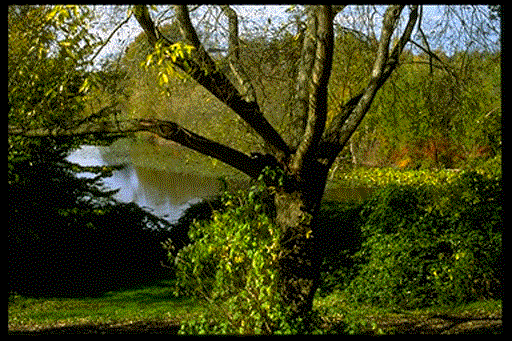- Righteousness
by Faith
- 1895 General Conference
Sermons
- by A. T. Jones
-
-
- Sermon 4
-
-
-
- We have looked at the evidences which
reveal to us the existence and active working of both the beast
and his image in the United States--both are even now grasping
for supreme power, governmental power, to be used in enforcing
the same thing, the mark of the beast. Our message is against
that. "If any man worship the beast and his image and receive
his mark in his forehead or in his hand, the same shall drink
of the wine of the wrath of God." It is not enough, however,
for us to tell the people that the course that these others are
following is wrong, unless we show to them that this is so; it
is not enough for us to say it, unless we can cause them by the
Scriptures to see it; and therefore the lesson we will study
now is the reasons why that thing is wrong.
-
We will begin with Phillipians 3:20, reading
the Revised Version. "Our citizenship is in heaven, from
whence we look for the Savior, the Lord Jesus Christ." This
is the Lord's statement concerning every Christian. Every Christian's
citizenship is in heaven. The Authorized Version is, "Our
conversation is in heaven," but that word "conversation"
does not mean simply our words and the conversation which we
have one with another in talking about neighborly affairs, or
whatever it may be, but our manner of life, our course of conduct,
our walk, is in heaven.
-
-
- Now as our citizenship, the citizenship
of every Christian, is in heaven, what has any citizen of heaven
or of the heavenly government rightly to do with the political
or governmental affairs of any other government or any other
kingdom? In fact what has a citizen of any government rightly
to do with the political concerns or management of any other
government?
-
-
- These people of whom we have been reading
in the previous lessons, profess to be citizens of the heavenly
kingdom, profess to be those whose citizenship, the Scripture
says, is in heaven, but they are constantly involving themselves
in the political workings of the governments of this earth. They
profess to have a citizenship in heaven and yet they manipulate
the affairs of the kingdom of earth! They profess to be citizens
of the kingdom of God, yet they propose to regulate the affairs
of the governments of men. But that is a thing that never can
rightly be done.
-
-
- If a citizen of Great Britain should come
into the United States, still retaining his citizenship in the
government of Great Britain, and should take part, or attempt
to take part, in the political affairs of this government, his
action in that respect would be resented by every citizen of
the United States. It matters not with what party he might wish
to ally himself and work; they would not have it. They would
say to him, That is none of your business. You do not belong
here. You are a citizen of another government. If the laws of
this country do not suit you, that has nothing to do with the
case. The political systems of this country suit us, and if things
do not suit you, just let them alone, or else change your citizenship
from the government to which you belong, and bring your citizenship
here, and then begin to discuss the laws and how they should
be made and what they should be.
- You know that that is so. You know that
that is the way that a citizen of another country would be treated
by all the citizens of this country if he should undertake to
manipulate, to control, or have any part in the political concerns
of this country. That is not denying his right to live here;
he may do that, but all do deny his right and his very citizenship
in another country denies his right to have anything to do with
the citizenship of this country or with the political affairs
of this country.
-
-

- As the Christian's citizenship is in heaven,
that itself, the very principle of it, prohibits him from taking
part in any of the political concerns of any other government,
even though it be the government of the United States. And that
is so. It exists in the very nature of the case. It lies in the
very principle of citizenship itself.
-
-
- Not to dwell too long on any one text,
although each text that shall be read will tell the whole story,
turn next to 2 Corinthians 5:20: "Now then we are ambassadors
for Christ, as though God did beseech you by us: we pray you
in Christ's stead, be ye reconciled to God." This is not
simply the ordained minister, for all who receive the grace of
God are to minister that; they are ministers of that grace. So
it is written: "As every man hath received the gift, even
so minister the same one to another, as good stewards of the
manifold grace of God." Even if it were confined to the
ministry, this text would not be out of place in this connection,
because it is the ministry that takes the lead in all this work
of the beast and his image and is managing the whole movement,
leading the people under their charge into these devious and
evil ways.
- So then, "We are ambassadors for
Christ." An ambassador is one sent, and accredited by one
government as the representative of that government to another
country. Now the principle of ambassadorship prohibits him from
any interference whatever with the political concerns of the
government to which he is accredited. If the British ambassador
to the United States that is tonight in Washington city--or the
ambassador from France or any other of these countries--should
express an opinion upon, or take any part in, any of the political
concerns of this country, his sovereign would be immediately
notified that he was no longer an accepted person here, and would
be called upon to withdraw him from the position of ambassador
in this country.
-
-
- That has been done at least twice in my
recollection. In one of Grant's administrations the Russian minister
to this country touched in some slight way upon some political
issue, a mere insignificant one so far as any particular turn
of politics was concerned. Yet he was sent out of the country
at once, recalled. In the campaign between Cleveland and Harrison
the first time, you remember the British minister to this country,
Sackville-West, received a letter from a Mr. Murchson of California,
who pretended--whether it was correct or not--to be a British
subject, and in the letter were some questions and observations
upon the then current issues of the presidential campaign. The
British Minister answered the letter and expressed an opinion.
The letter was published and a dispatch was immediately sent
to the court of St. James, demanding his recall, and he was recalled.
-
-
- These are cited merely to illustrate the
recognized principles of ambassadorship among nations, among
men.
- "We are ambassadors for Christ."
These church leaders who are building up the beast and his image
profess to stand in the place of and profess to be ambassadors
for Christ, yet they not only express opinions, but they lay
down laws, they manipulate campaigns, they mold politics, and
shape the whole political course of the governments among the
nations and the people to whom they are accredited, and thus
violate the first, the last, and every principle that is involved
in ambassadorship.
- Here then are two distinct reasons given
in these two plain scriptures, the same principle expressed in
two ways that demonstrate that the course of these professed
citizens of the heavenly kingdom, these professed ambassadors
for Christ, is absolutely wrong. And our preaching the message
and the warning against the worship of the beast and his image,
against the evils which are simply the result of the violation
of the principles here laid down--our opposition to that, our
warning against it, must be one of principle, and not merely
in theory, nor from policy. Unless our proclamation against it
is founded upon principle and is loyal to principle, our proclamation
will amount to nothing. If we hold in theory only that it is
wrong and make the proclamation against it even in the words
of Scripture and in practice ourselves violate the principle,
our proclamation will amount to nothing. So that our connection
with this must be with the principle and that in principle and
in loyalty to the principle and that from the heart--not in theory,
not assenting to it merely. The principles of Jesus Christ speak
to the heart. They take hold of the heart and are of value only
as they have hold upon the heart. If they do not have hold upon
the heart, the man who professes these principles will violate
them in his actions, even though he be a Seventh-day Adventist.
-
-
- "Our citizenship is in heaven,"
and of all people our "citizenship is in heaven, from when
we look for the Savior, the Lord Jesus Christ."
-
-
- Again, John 18:36:
-
-
- Jesus answered, My kingdom is not of this
world. If my kingdom were of this world, then would my servants
fight, that I should not be delivered to the Jews.
-

-
- If His kingdom were of this world, then
for what kingdom would His servants fight? For a kingdom of this
world. For what kingdom would they contend? For what would they
work? For the kingdom of this world. Then the man who fights
for a kingdom of this world, who contends for supremacy and power
in the kingdom of this world, denies His connection with the
kingdom of Jesus Christ, for His kingdom is not of this world.
But that is what these men are doing who are leading in this
movement of which we have read in two preceding lessons. They
seek to take possession of the kingdoms of this world, to rule
the governments of this world, to fight, actually to fight, for
the governments of this world, to work to put themselves in places
of position and relationship to the governments of this world,
and therefore they proclaim with the loudest voice they possibly
can that they are of this world and not of the kingdom of Christ
at all.
- Another scripture in connection with the
same thing is found in Luke 22:24-26: There was also a strife
among them which of them should be accounted the greatest in
the kingdom which they expected to come upon this earth--the
kingdom which they expected Christ to set up and which they expected
would be a kingdom of this world, and in which they would have
a place. There was a strife among them as to which should be
accounted the greatest, and which would have the greatest place
in that expected kingdom. It was a mistaken idea, to be sure,
with respect to the kingdom, but the lesson that he gave them
upon it is applicable in all cases of the kind.
-
-
- "And he said unto them, The kings
of the Gentiles exercise lordship over them, and they that exercise
authority upon them are called benefactors."
-
-
- Factors, agents; benefactors, agents of
good! That is what these church leaders now profess to be; agents
of good to the country, to the people; to be working the redemption
of cities, states, and nations--thus these would now be called
benefactors. "But ye shall not be so." "So"
what? These exercise lordship over them and exercise authority
upon them. "Ye shall not be so." Where? Why, ye shall
not exercise authority and lordship over one another in the church,
in the place where you do belong. How, then, about exercising
authority and lordship over people in a place where you do not
belong at all?
-
-
- Another verse in connection with the one
we had a moment ago, "My kingdom is not of this world":
-
-
- Giving thanks unto the Father, which hath
made us meet to be partakers of the inheritance of the saints
of light: who hath delivered us from the power of darkness, and
hath translated us into the kingdom of his dear Son. Col. 1:12,
13.
-
-
- What we want to study there is the contrast
between this light and the darkness. "Delivered us from
the power of darkness." That is not simply the power that
darkness itself exerts upon us, but the idea is, delivered us
from the dominion, the rulership, the government of darkness;
brought us out from under the jurisdiction of the power of darkness,
and "hath translated us into the kingdom of His dear Son."
-
-
- Now we read in Eph. 6:10-12:
-
-
- Be strong in the Lord and in the power
of his might. Put on the whole armor of God, that ye may be able
to stand against the wiles of the devil. For we wrestle not against
flesh and blood, but against principalities, against powers,
against the rulers of the darkness of this world.
-
-
- There are defined the dominion, the rulership,
and the authority that rules the darkness of this world. Now
we are to contend against that. And only those can contend successfully
who have been delivered from the power of that darkness and translated
into the kingdom of His dear Son.
-
-
- In this I am not saying that the kings
and other rulers of the political governments of this world are
the "rulers of the darkness" referred to in the text.
The text is not quoted for that. The "rulers of the darkness"
here referred to, we all know to be the spiritual powers of darkness.
But the text says that these spiritual powers are the rulers
of the darkness of this world. And it therefore shows that this
world is in that darkness and is of that darkness and shows therefore
that kingdoms and governments being of this world only are in
and of the darkness. That is what the text is quoted for.
Now read in Eph. 5:8: "Ye were sometimes
darkness." When? Why, when we were subject to "the
rulers of the darkness of this world," when we were in sin.
"For ye were sometimes darkness but now are ye light in
the Lord: walk as children of light; proving what is acceptable
unto the Lord."
-

-
- Governments, nations, political organizations
are of this world only; they belong to this world only. And the
world is under the dominion of darkness. "Darkness shall
cover the earth and gross darkness the people." Are governments
and municipalities of the kingdom of God or of this world? They
belong to this world and to this world alone. That is the side
of darkness. But he who is translated
out of darkness, delivered from that darkness and translated
into the kingdom of God's dear Son is of another world; he belongs
to another world. He is connected with another world, and that
world indeed is the heavenly world. The city to which he belongs
is the heavenly city. There is his citizenship--in the dominion
and the world of light. Then what connection has that kingdom
of light with the kingdoms of darkness? What has that government
which is in the light and is of the light, to do with governments
that are in the darkness and of the darkness? What have those
who profess, as these National Reformers do, to belong to the
dominion of light, to [do with] the kingdom of light? What have
these rightly to do with the affairs of darkness and the rulership
and the dominions that pertain only to this world of darkness?
"What fellowship hath light with darkness?" That question
belongs here. And the same thought is expressed right here in
connection with the text we are studying. Read now the whole
connection: Ye were sometimes darkness,
but now are ye light in the Lord: walk as children of light (for
the fruit of the Spirit is in all goodness and righteousness
and truth), proving what is acceptable unto the Lord. and have
no fellowship with the unfruitful works of darkness, but rather
reprove them.
-
-
- How much of the world is to be embraced
under the dominion of the beast and his image? All the world.
What is our message? "If any man worship the beast and his
image." That is our message to the world. To how much of
the world is that message due and applicable? All the world.
Then what has that message to do but to do this very thing--to
"have no fellowship with the unfruitful works of darkness,
but rather reprove them?" Will that message be a reproving
message to everyone that is engaged in the work of the beast
and his image? It will.
- Thus the work of the beast and his image
is violative of the principle of citizenship of the kingdom of
God, or any other kingdom; violative of the principle of ambassadorship
of Jesus Christ or any other ambassadorship; violative of the
principle that Jesus Christ laid down for his disciples as to
seeking place and authority; violative of the principle of his
that separates the government of God from the governments of
this earth--that separates between light and darkness. It is
simply an attempt to blend light and darkness and is always and
only darkness that will seek to blend the government of light
with the governments of darkness.
- There are several other texts that I want
to read. John 17:14 and onward, Christ's prayer for His disciples:
"I have given them thy word, and the world hath hated them."
In another place He says to them:
-

-
- If ye were of the world, the world would
love his own, but because ye are not of the world but I have
chosen you out of the world, therefore the world hateth you.
Remember the word that I said unto you, The servant is not greater
than his Lord.
-
-
- Now the 18th verse: "If the world
hate you, ye know that it hated me before it hated you."
Then turn to another place and you find the statement of Christ:
"The world cannot hate you, but me it hateth, because I
testify of it, that the works thereof are evil."
-
-
- When the beast and his image govern the
world and here are a people that are testifying against it, testifying
that its works are evil, then what will follow? That people will
be hated. But if one does not testify to the world that its works
are evil, is the world going to hate him? Oh no, the world will
love its own.
-
-
- Now read on in the 17th chapter of John
and the 14th verse: "And the world hath hated them, because
they are not of the world, even as I am not of the world."
There is the standard; there is the measure of compassion that
tests our relationship to this world. That is Jesus Christ. "They
are not of the world, even as I am not of the world."
-
-
- I pray not that thou shouldest take them
out of the world, but that thou shouldest keep them from the
evil. They are not of the world, even as I am not of the world.
- Here are these National Reform church
leaders, professing to be not of this world. If that profession
be true, they will act as Jesus Christ did when he was in this
world with respect to governmental affairs on the earth. That
is what we are talking about now. The beast and his image are
of the world. If these church leaders are right, if they are
of the truth, if they are of Christ's truth, then they are no
more of the world, and no more interfering and taking part with
the affairs of this world, or seeking to control in political
affairs, than Jesus Christ did himself in the world.
-
-
- And to what extent did He do it? He never
touched it. Were there not evils in His day that ought to have
been corrected? Evils in city government? Evils in colonial government?
Evils in imperial government? Why in the world did He not set
about to redeem Jerusalem and Rome by political wire-working?
Why didn't He? Because He was not of this world. Then as certainly
as these are engaged in it, they demonstrate that they are not
of Christ, 9 nor of the truth of Christ, but are of this world.
And they being of this world, yet professing the name of Christianity,
seek to run Christianity in the mold and the form of this world,
and that is antichrist.
- Let us read a text in which we have a
definite statement upon this subject. In the book of Luke, 12th
chapter, 13th verse to the 21st: "One of the company said
unto him, Master, speak to my brother, that he divide the inheritance
with me." Here is a man whose parents had died, leaving
an inheritance. His brother, it seems, had not dealt fairly with
him, and he calls upon Jesus to speak to the brother and have
him act right in the matter. That was, in principle, asking Jesus
to take the position of a magistrate or an arbitrator in affairs
of this world, concerning things that pertain to the government
of this world, to sit in judgment upon that case and decide what
was right and direct accordingly. It is a case that contains
the whole principle which is involved in the evidences which
we read in the extracts given in the two preceding lessons. "And
he said unto him, Man, who made me a judge or a divider over
you? And he said unto him," (not simply to him, but that
was a text from which Christ would teach him and all the rest
a lesson):
-
-
- Take heed, and beware of covetousness,
for a man's life consisteth not in the abundance of the things
which he possesseth. And he spake a parable unto them, saying,
The ground of a certain rich man brought forth plentifully: and
he thought within himself, saying, What shall I do, because I
have no room where to bestow my fruits? And he said, This will
I do: I will pull down my barns and build greater, and there
will I bestow all my fruits and my goods. And I will say to my
soul, Soul, thou hast much goods laid up for many years; take
thine ease, eat, drink, and be merry. But God said unto him,
Thou fool, this night thy soul shall be required of thee: then
whose shall those things be, which thou hast provided? So is
he that layeth up treasures for himself, and is not rich toward
God.
-
-
- Now for the application of another point
upon ambassadorship. Ambassadors are rightly sent from one government,
one kingdom, to another. He is not sent there, as we found in
studying the former point, to manipulate, to interfere, or have
anything at all to do with the affairs of the government or of
the people of that government as they stand related to that government.
He is sent to that country, to that government, to attend to
the affairs of his own government as they may arise in that government
or in that country. That is what he is here for.
-

-
- There are subjects of Great Britain in
the United States, and there are in this country interests that
concern Great Britain, in connection with her subjects here.
She sends her ambassadors here, a personal national representative,
to attend to the affairs of Great Britain and of the subjects
of Great Britain, as these things may arise within the territory
of this government. And to these things alone is he to turn his
attention and devote his time--to the affairs of his own country,
as they may arise in the country where he is.
-
-
- So was Jesus Christ sent as the ambassador
of God to this world. He was in the country of Judea, the government,
the dominion, and the jurisdiction of Rome. He was asked to attend
to the affairs and take jurisdiction in matters that pertained
to that other country. But instead of yielding to the invitation,
he stuck closely to the affairs that belonged to his own country.
-
-
- They asked him to act as a judge and a
divider in the things that belonged altogether to the government
in whose territory he was, and where the man was. But he was
not there to attend to these things. He was there to attend to
the affairs of the kingdom of God, the affairs of the government
which sent him. And instead of crossing the line, and interfering
with the affairs that belonged properly under the jurisdiction
of this world, He, as became Him, was loyal to the kingdom to
which He belonged, and to the king whom He represented, and accordingly
He adhered strictly and attended closely to the affairs of that
government of the kingdom of God, as they arose in that kingdom
of this world.
-
-
- God has people in this world. He has interests
in this world. His people have interests in this world. That
is true. Therefore God rightly has ambassadors in this world,
but they are here to attend to the affairs of the kingdom of
God and the people of God, as the affairs of the kingdom of God
may arise in the course of things in this world, and not at all
to any affairs of the kingdoms of this world. And the ambassador
for Jesus Christ that goes over the line and undertakes to attend
to the affairs of this world, abandons his own government, breaks
his allegiance to his own King, and unlawfully and illegally
invades the province of another government. That is why the wickedness
of this thing is so great; that is why it made the beast in the
first place; that is why the violation of these principles makes
the image of the beast in the second place.
-
-
- Now I want to ask a question: Taking only
the texts which we have studied tonight and the principles that
lie in them--not that are brought to them but lie inevitably
in them--taking those texts alone, and if these principles of
the church had been strictly adhered to, as they were by Jesus
Christ in this world, would there, or could there ever have been
a papacy? Could there have been such a thing as the beast? Could
there ever, then, have been such a thing as the image of the
beast? No, sir. That is evidently true. Then upon that, as the
violation of those principles inevitably made the beast in the
first place, the violation of those principles in the second
place could not possibly do anything else than to make the image
of the beast. It was not because the people, the professed Christians,
in the Roman Empire were worse than any other professed Christians
that ever were, that made the papacy; it was not that. It was
the violation of the best principles that ever came into the
world, that made the worst thing that ever was in the world.
And when God had called the world once more unto himself by the
principles of Christianity, through the work of the Reformation
and set forth once more the principles of Christianity as against
the beast, that made Protestantism as it was. And when these
professed Protestants violate these principles, it brings the
same identical thing, in the perfect image of the original thing
that was made by the violation of the principles in the first
place.
-
-
- Then it has been demonstrated before all
the world on these two occasions, that the violation of those
principles revealed in the verses which we have read, can do
nothing else than curse the world with the very papal beastly
spirit. Then what thing is most to be avoided by everyone that
names the name of Christ? It is the violation of those principles,
and if it comes home even to Seventh-day Adventists themselves,
the thing to be done is to wed ourselves eternally to the principles
and hold to them, because those principles violated by Seventh-day
Adventists will work the workings of the papacy, as well as by
Protestants or by Catholics.
-
-
- So I say again, It was not because the
professed Christians of the Roman Empire were worse than any
other people on the earth that made the papacy as bad as it is.
It is not because the Protestant church leaders in this land
are worse than anybody else that the image of the beast has been
made and is carrying on its cruel workings, but it is because
those people violated the principles that have been laid down
for the good of the world and the violation of them can do nothing
else than to curse the world. And if they are violated by Seventh-day
Adventists even, it will be a curse--a curse wherever it is done.
-
-
- Once more, and then we will have to close
this lesson at about half way through: John 17:9: "I pray
for them." That is, His disciples, whom He said to the Father,
thou hast given me out of the world. "I pray for them: I
pray not for the world." Then can the man whose affections
and attention and his working and labor are upon this world and
engaged in the affairs of this world have the benefit of that
prayer? No, sir. "I pray for them: I pray not for the world,
but for them which thou hast given me, for they are Thine."
Given me out of the world. Taken from the world. Given them to
me. I pray for them; they are not of the world, even as I am
not of the world. Then every man who would have the benefit of
that prayer must be separated from the world, from the things
of this world, from the affairs of this world--his affections
off from anything that is in the world or of it, as certainly
and as entirely as Jesus Christ Himself, for "they are not
of the world, even as I am not of the world."
-
-
-
-

- [1895 GC Sermons Contents]





